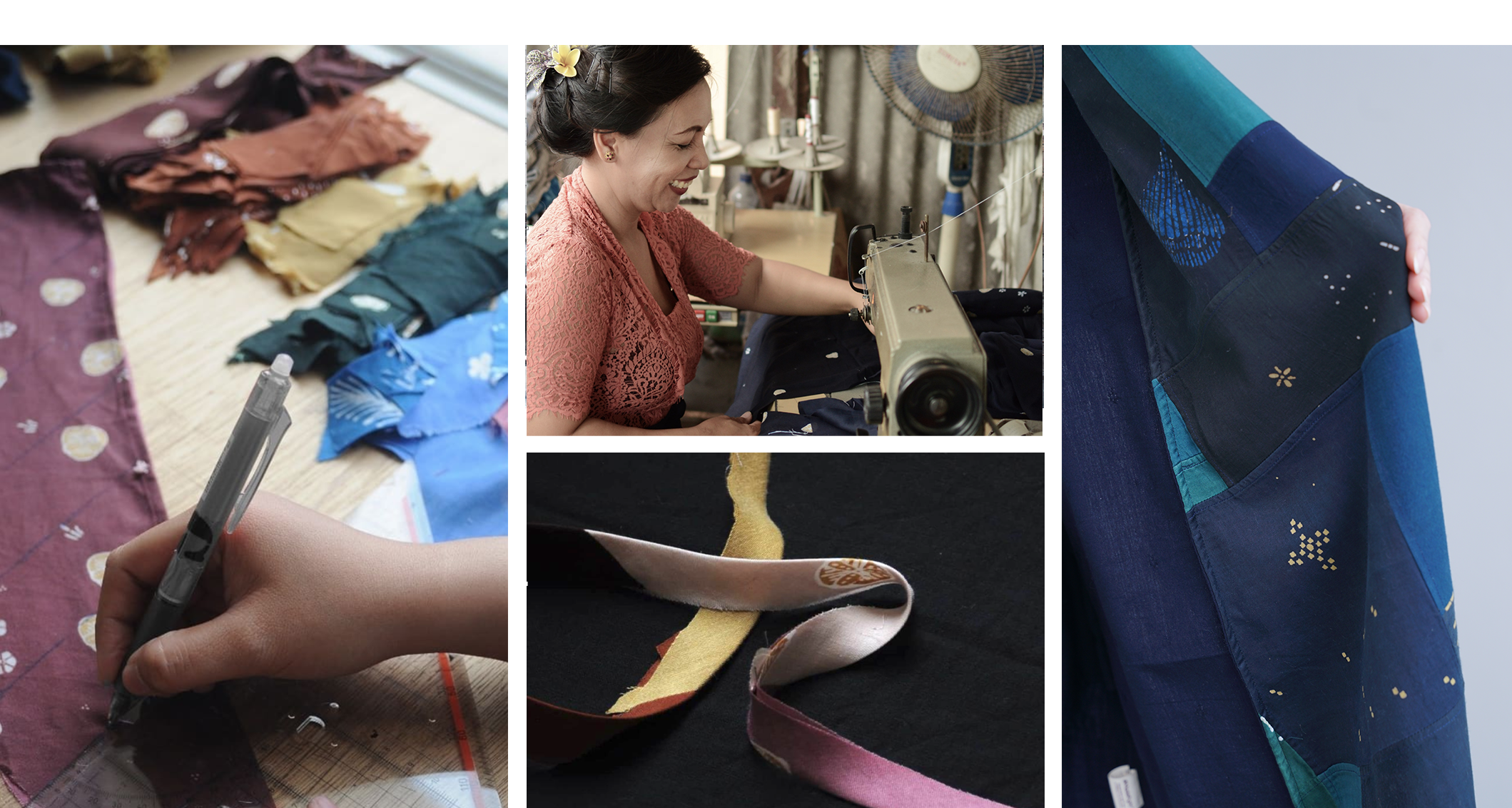Threads of Hope: New Opportunities for Women in Bali
Started in the midst of the pandemic, Threads of Hope is one of our foundation’s first programs. From a simple training in a friend’s house to Bali’s first craft school - we’ve already come a long way.
Denica and Ana (first and fifth from the right) after a training at Rumah SukkhaCitta Bali
Progress doesn’t come in big leaps
Sometimes, it’s easy to dismiss just how much progress has been made. Maybe because it does not come in big leaps, but small, consistent steps in the right direction. Steps that seem so tiny and even insignificant at first - but are vital in getting where you need to go.
Threads of Hope was one of our foundation’s first projects - right in the midst of the pandemic. Together with our social enterprise, we set up our first craft school outside of Java island, Rumah SukkhaCitta Bali.
The idea was to provide women whose entire families had lost their livelihoods with much needed alternative income outside the tourism industry. Many had been laid off just a few months earlier - struggling to get by, working for whatever anyone was willing to pay.
The first training took part in the middle of the pandemic - introducing embroidery and visible mending skills.
Small Steps in the Right Direction
It wasn’t a smooth journey. In fact, for the first training back in January 2021 we actually had to rely on the kindness of the parents of a team member - who allowed us to use their house for free for a couple of days.
But being with the women and seeing their joy and enthusiasm, we know that we had to create a more permanent home for them.
So in mid 2021, your contributions to our Fund an Education program provided the resources to rent and renovate a house in a small town near Denpasar. Just big enough to host trainings for additional women while also allowing the cooperative to set up their running production - in a clean and safe space they could call their own.
The women celebrating the opening of Rumah SukkhaCitta Bali with a traditional Balinese blessing ceremony.
Since then the cooperative has grown from only 3 to now over 16 women - thanks to continued trainings by our entire team: From workplace safety, quality management and keeping track of fabric inventory all the way to intricate sewing and embroidery skills as well as our waste fabric upcycling program.
Especially Ana and Gita kept coming back to check in on the women and - most importantly - train them to become trainers themselves so the cooperative can grow more quickly.
Ana (third from the right) during one of her trainings at Rumah SukkhaCitta Bali in late 2021
Champions of Upcycling
Looking back at the humble beginnings, it fills us with joy to see how much RSC Bali has blossomed. Today, it has become a major hub in our Rumah SukkhaCitta network. It is home to two young scholarship holders who our current community leader is grooming to take over the cooperative one day.
And the women of Tegal Kertha have quickly become SukkhaCitta’s upcycling champions:
In 2022 alone the seamstresses kept an impressive 1,562kg of fabric waste out of Bali’s landfills – turning these scraps into new fabrics and products. This is equivalent to preventing approximately 30 tons of CO2e (equivalent to burning through almost 1,400 big LPG cylinders) – because making new fabrics rather than upcycling old or unused ones has a very high carbon footprint – from growing the fiber to processing and dyeing it.
But we are only getting started.
Seeing how our cooperative in Bali has grown we are now looking for a bigger space in a more central location - allowing more women to join our initiatives and further scale our upcycling program.
Because even though tourists once again flock to the island of the gods, employment conditions for many women remain dire. And climate change, water availability and increasing global tensions all pose threats to the islands main source of livelihoods.
So providing women with new skills and opportunity and diversifying the local community away from its sole reliance on tourism is key to ensure their long term prosperity.





